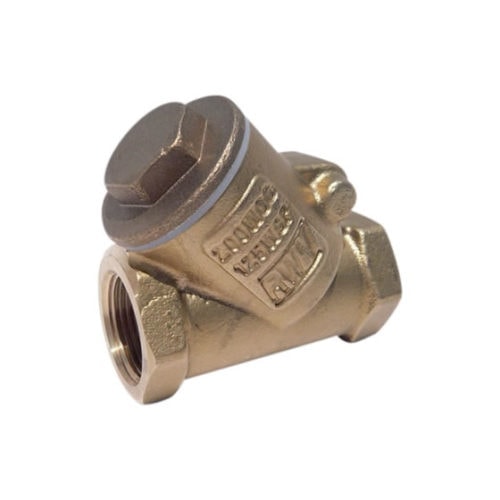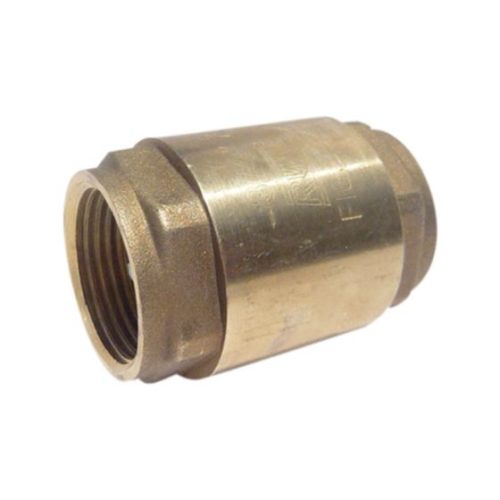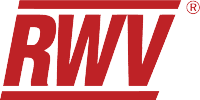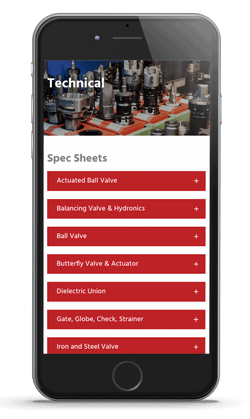Swing Check Valve vs. Spring Check Valve
Comments Off on Swing Check Valve vs. Spring Check ValveValves are versatile devices used for controlling the flow of liquids or gases. They play an important role in countless piping and process systems, typically serving to regulate flow and pressure, start or stop flow, or prevent the occurrence of back flow within a system. Swing check and spring check valves are two relatively common valve types that have broad applications.
Swing check valves prevent reverse flow in systems with horizontal forward flow utilizing a swinging flap. Spring check valves also prevent reverse flow, in this case utilizing a spring-loaded plunger. Understanding the differences between these two valves is beneficial in determining the optimal valve for a particular system or application.

Swing Check Valves
In swing check valves, a flapper will swing away to allow forward flow of a fluid or gas. When it is time to stop the flow, the flapper will swing back onto the seat, closing the valve automatically as the system pressure decreases. Swing check valves are notable due to their large flow capacity. Since these devices require a swinging motion to function, their use is limited to horizontal flows or vertical upward flows.
Pros and Cons of Swing Check Valves
The most significant advantage of swing check valves is their low cost, which allows them to work within a wider range of project budgets. They also provide large flow capacity. Since this valve cannot support downward vertical flow, there are limits to the types of systems it can serve. Also of note, swing check valves are also more likely to amplify water hammer.
Applications of Swing Check Valves
Swing check valves function well with a variety of media, including liquids and gases. Some frequent use cases for swing check valves include firefighting equipment, flood prevention in sewage systems, and toilet flush mechanisms.
 Spring Check Valves
Spring Check Valves
Spring check valves typically have hollow bodies and a large stopper, which receives constant pressure from a spring. When gas or fluid flows forward at sufficiently high pressure, the force will overcome the pressure from the spring and cause the stopper to open, allowing the desired flow.
Unlike swing check valves, spring check valves offer fairly low noise levels. They also minimize the sound and damaging effects of water hammer. This type of valve functions well in vertical applications, as it utilizes a spring to close the valve rather than relying on gravity and pressure.
Pros and Cons of Spring Check Valves
Since spring check valves are functional in vertical applications, they offer significantly more versatility than swing check valves, and are much more likely to fit with preexisting piping configurations. Depending on the spring selection, this type of valve will work well in virtually any flow orientation.
Spring check valves also offer the advantage of reducing water hammer. Known as a “silent check valve,” this type of device keeps noise levels down in applications where swing check valves could potentially exacerbate the issue. Other advantages of spring check valves include:
- Heat and cold resistance
- Rapid flow interruption
- Positive sealing even at a pressures below the cracking pressure
When compared to swing check valves, however, spring check valves are typically more expensive. They also have a lower flow capacity.
Applications of Spring Check Valves
Spring check valves are ideal for numerous purposes in water pipelines and systems. This type of valve serves to protect equipment from the damage that can be caused by back flow, thus reducing the risk of system downtime and potential contamination. Additionally, spring check valves can relieve pressure from the system to create a safer environment and ensure proper system function.
Valve Solutions from RED-WHITE VALVE CORP.
RED-WHITE VALVE CORP. has been providing our customers with industry-leading valve solutions for over 50 years. Our global market includes customers in industries such as HVAC, commercial, and plumbing. We perform all our own manufacturing at our own state-of-the-art facilities, giving us superior control over the quality of our products. We also perform 100% air testing during quality control to verify the efficacy of every valve.
To learn more about our valve solutions and how they will benefit your operation, please contact us today.

